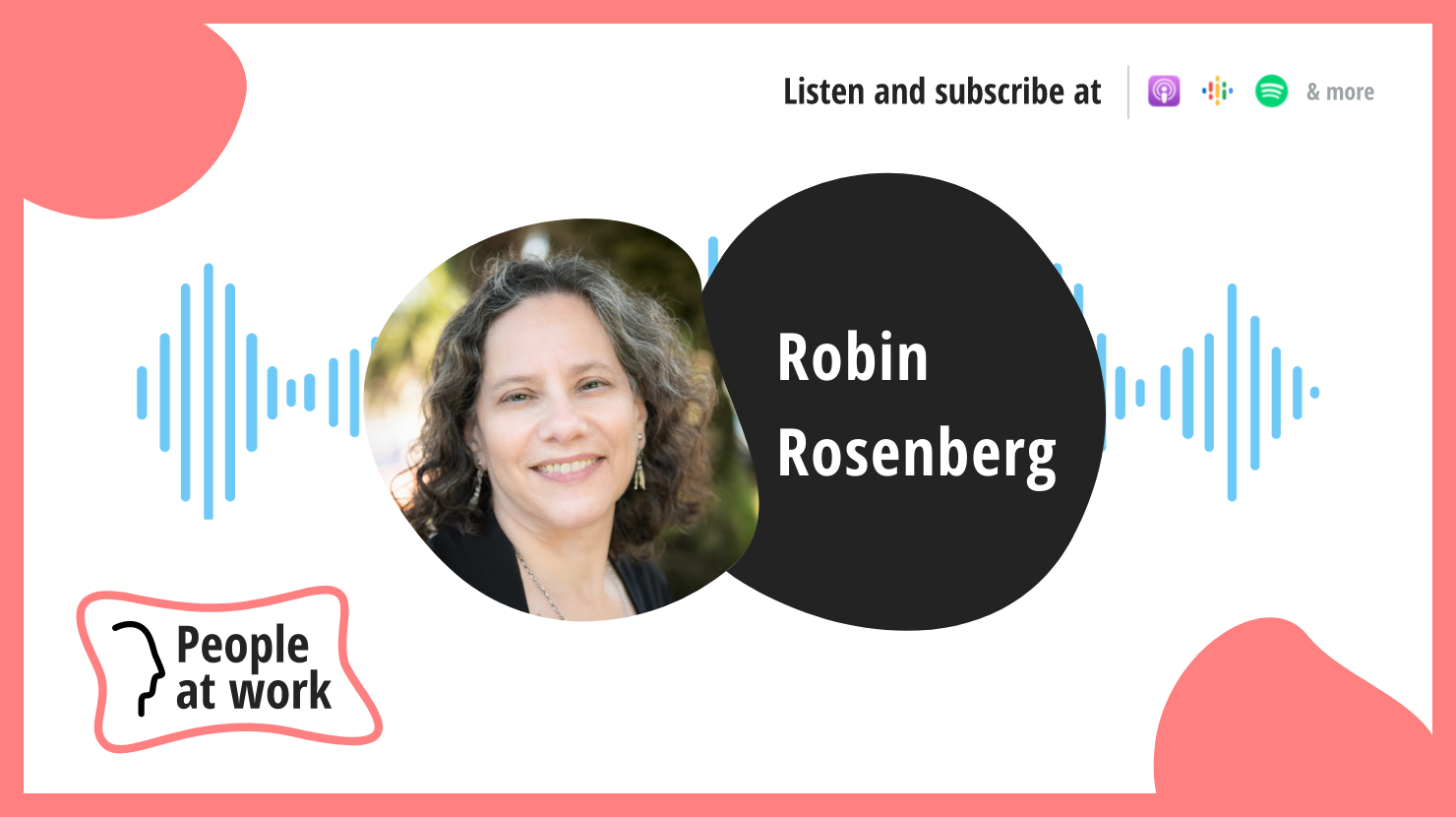
3 min read
In this episode of People at Work, Robin Rosenberg joins us to talk about using virtual reality as a means of training.
I was an early-ish adopter of virtual reality (VR). When the HTC Vive came out in 2016 I ended up buying one sheerly out of curiosity. The graphics were pixelated and didn’t look that realistic...but it’s so immersive that it felt real. So real that I may or may not have punched air when a ghost popped out while playing a Paranormal Activity VR game. Luckily that event was not captured on video.
So what in the world does all that have to do with this podcast?
On this episode I got to chat with Robin Rosenberg, CEO and Founder of Live In Their World, about how VR is an effective tool to help with civility training and DE&I. It allows people to truly live in someone else’s shoes for a brief moment and see how a scenario may play out. For example, men can experience what it’s like to be a woman as a man stands over their desk speaking to them. It helps drive home the feelings someone might experience to help decrease bias and increase respectful engagement.
We also chat about how VR is just a tool and that ultimately it comes down to building a habit of taking the time to be self-aware enough to realize how your words and deeds impact others, and then adjusting your behavior accordingly.
Listen to the episode
Apple | Spotify | Google Podcasts
“Civility is thinking about how your words and deeds impact others and adjusting your behavior accordingly.”
Robin Rosenberg
CEO and Founder, Live in Their World
Robin S. Rosenberg is the CEO and Founder of Live in Their World. Robin is a clinical psychologist and textbook author. Robin has also been interested in virtual reality (VR) for years, and was the lead author of a study to investigate using “VR for good.” She has written and spoken about the psychology of superheroes, using other people’s fictional stories to illustrate scientific psychological findings.
Read more by
Dustin Tysick
Jostle’s employee success platform is where everyone connects, communicates, and celebrates at work. Find out more at jostle.me. © 2009–2024 Jostle Corporation. All rights reserved.